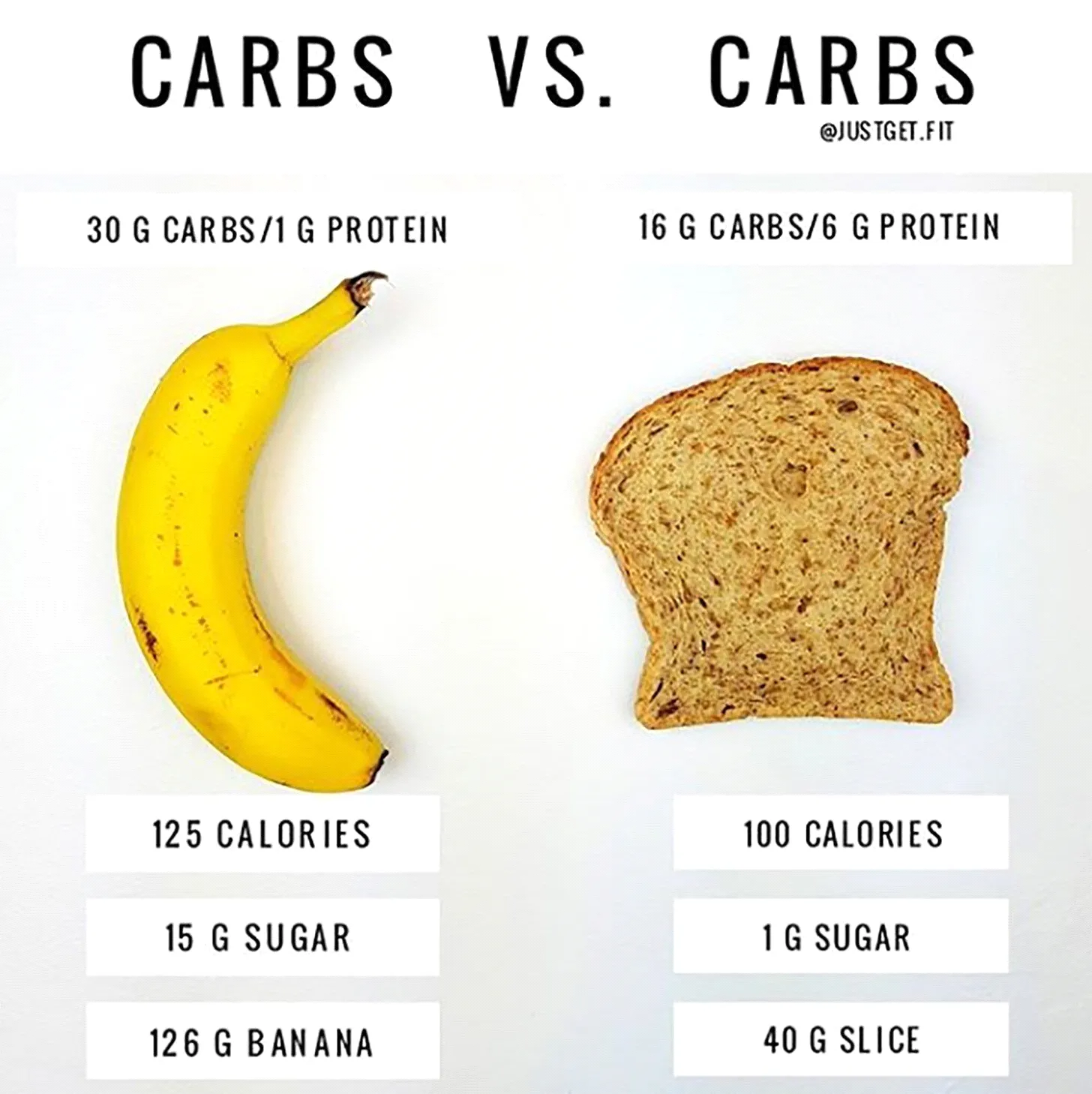All You Need to Know: Are Bananas a Simple or Complex Carb?
Bananas are a beloved fruit, known for their delicious taste and nutritional benefits. But is a banana a simple or complex carb? And what exactly are carbs, anyway? These are some of the questions we’ll explore in this article.

We’ll delve into the difference between simple and complex carbs, discuss the nutritional benefits of bananas, and consider alternative sources of carbs. Whether you’re a health-conscious individual or just curious about the topic, this article is sure to inform and enlighten. So keep reading to learn more about the complex world of carbs and banishing misconceptions about this tropical fruit.
What are carbohydrates?
Carbohydrates, or “carbs” for short, are a type of macronutrient found in bananas and other foods. They are made up of molecules that contain carbon, hydrogen, and oxygen atoms. Carbs serve as an important source of energy for the body.

Bananas are a great source of carbs because they contain both simple and complex carbohydrates. Simple carbs provide quick bursts of energy while complex carbs take longer to break down and provide sustained energy over time.
It’s important to note that not all carbs are created equal. Some foods high in carbohydrates such as white bread or sugary drinks may lead to spikes in blood sugar levels which can be harmful to overall health. However, bananas provide a healthy source of carbohydrates that can help fuel the body without these negative effects.
In addition to providing energy, carbs also play a role in supporting brain function and aiding digestion. So next time you reach for a banana as a snack or ingredient in your meal, remember the importance of its carb content for your overall health and well-being.
The difference between simple and complex carbohydrates.
When it comes to carbohydrates, not all are created equal. Simple and complex carbs differ in their chemical structure and how they affect our bodies.
Simple carbs, also known as simple sugars, are made up of one or two sugar molecules. They are quickly digested and absorbed by the body, leading to a rapid spike in blood sugar levels. Examples of foods high in simple carbs include candy, soda, and fruit juices.
On the other hand, complex carbs consist of three or more sugar molecules connected together. They take longer to digest and provide a more sustained release of energy throughout the day. Examples of foods high in complex carbs include whole grains, vegetables, and fruits like bananas.
Bananas specifically contain both simple and complex carbs – making them an excellent source of quick energy as well as sustained fuel for your body. The natural sugars found in bananas provide an immediate boost while the fiber content helps regulate blood sugar levels over time.
When choosing your carb sources for optimal health benefits, aim for a balance between simple and complex options like bananas – with their combination of immediate energy release plus longer-lasting effects on your body’s performance!
Is a banana a simple or a complex carb?
Bananas are often considered a healthy and nutritious snack option, but there is still some debate around whether they should be classified as a simple or complex carbohydrate.
At their core, bananas contain a significant amount of carbohydrates in the form of sugar. However, the type of carbohydrate present can vary depending on the ripeness of the banana.

When bananas are unripe and green, they contain more starch than sugar. As they ripen and turn yellow, that starch begins to break down into simpler sugars like glucose and fructose. This transition from starch to simple sugars is what causes bananas to become sweeter over time.
So where does this leave us in terms of carb classification? Some experts argue that unripe bananas should be considered complex carbs due to their high starch content, while ripe bananas could be considered simple carbs due to their increased sugar levels.
However, it’s important to note that this debate around carb classification may not have a significant impact on your overall health or nutrition goals. Whether you choose to classify bananas as simple or complex carbs, they are still a great source of fiber, vitamins and minerals that can benefit your body in numerous ways.
The nutritional benefits of banana.
Bananas are a nutritional powerhouse that can provide a wide range of health benefits for those who consume them regularly. These yellow-skinned fruits are packed with essential vitamins and minerals that can help to keep your body healthy and functioning optimally.
One of the most notable nutritional benefits of bananas is their high potassium content. This essential mineral plays an important role in regulating blood pressure, maintaining healthy heart function, and supporting muscle strength and endurance. Additionally, bananas are rich in vitamin C, which can help to boost your immune system and reduce inflammation throughout your body.
But the benefits don’t stop there. Bananas also contain significant amounts of dietary fiber, which can help to improve digestion and promote feelings of fullness after eating. And with just 105 calories per medium-sized banana, they make for a satisfying snack or addition to any meal without adding excess calories or sugar.

« banana vs plantain tree
why is my banana tree turning yellow »
So if you’re looking for a delicious way to boost your health and nutrition levels, be sure to include plenty of bananas in your diet. Whether you enjoy them sliced on top of oatmeal or blended into smoothies, these versatile fruits offer plenty of reasons to make them a regular part of your eating routine.
Alternative sources of carbohydrates.
When it comes to alternative sources of carbs, bananas are often overlooked. While most people associate bananas with potassium and fiber, they are actually a great source of complex carbohydrates.
Unlike simple carbs found in processed foods, complex carbs found in fruits like bananas provide sustained energy throughout the day. They also contain essential nutrients like vitamin C and B6 that can help support the immune system and promote healthy brain function.
Bananas are also versatile when it comes to incorporating them into your diet. You can slice them up for a quick snack, blend them into smoothies for a pre-workout boost or even use them as a natural sweetener in baked goods.
So next time you’re looking for an alternative source of carbs, don’t overlook the humble banana. It may just be the perfect addition to your healthy eating routine.
Check out our other articles to find out even more about banana.
Bananas are an amazing source of nutrition and a versatile food option that can be enjoyed as part of any balanced diet. Whether you’re looking for complex carbs or simple carbohydrates, bananas have you covered! To learn more about the benefits and potential drawbacks to incorporating this delicious superfood into your meals, check out our other articles to find out even more about banana.













